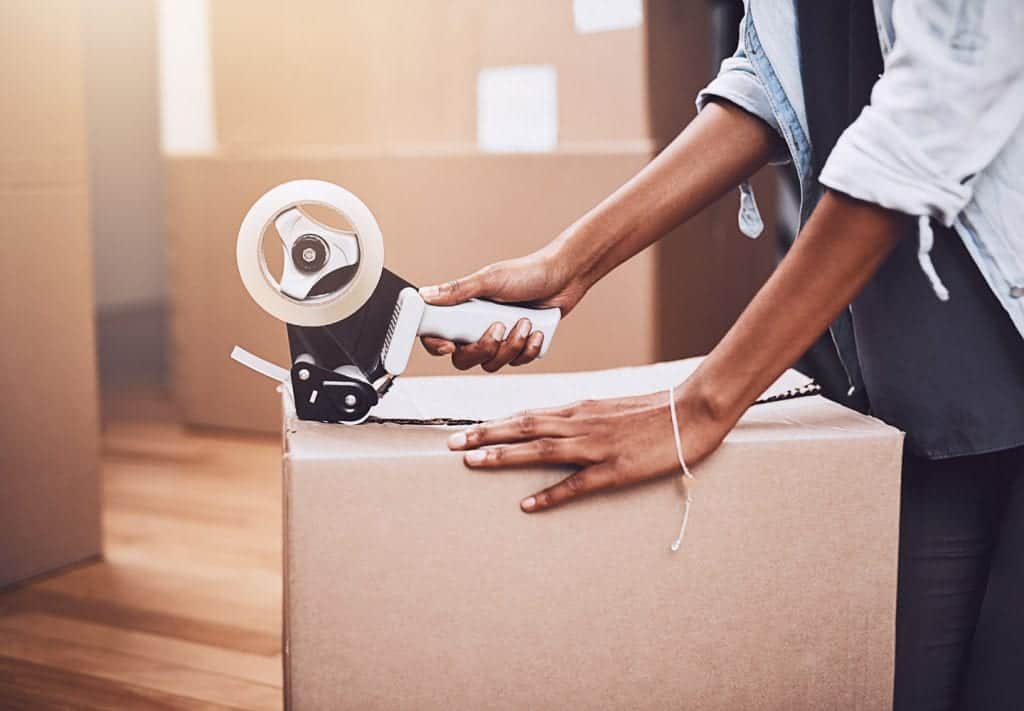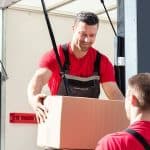Most Important Moving Checklist That Everyone Should Know – The Most Important Moving Checklist That Everyone Should Know to prepare while moving is you should continue to organize everything. Moving involves multiple tasks from packaging and labeling boxes to informing benefit companies about changing your address.

A checklist is a normalized list of required steps for unchanging tasks. It provides many benefits, It helps people stay more organized, and make sure they will not skip any basic steps in the process.
Most Important Moving Checklist
8 Weeks Before You Move
- Create a moving file where you can track everything. If you follow this step, you will save a lot of time.
- Print out your moving checklist and put it in a moving case when you separate your moving job into eight blocks starting two months before you move and finishing two weeks after you enter a new home.
- Arrange your document and keep track of your moving approximate, final bills, and other information you get from moving companies
- Regulate what else goes into your moving case after you add the list and you may want to produce the part for things like documentation, receipts, and contact information.
- Recognize all your appointments we are not mentioning doctor visits we are doing lists for connecting usefulness organizing observation, or registering the names of kids in the new school.
- Keep track of furniture estimation. The last thing you want when moving into a new home is to locate your sofa that would not fit through the door. Estimate all your big stuff to avoid a big mistake when moving.
- Start packaging your first box, this is not the time to get all your dishes into moving boxes but to put all your crucial documents and precious items into one place. You will be able to identify any important information you don’t have or you will never forget which boxes have all your important items.
- Recognize what kind of move you are doing for example if you want to do everything yourself, have someone else do all the work, or find an option.
6 Weeks Before You Move
- Investigating moving companies does not make moving more expensive and stressful than it needs to be. make a list of the best-moving discounts and deals.
- Start collecting free operating boxes from local grocery and furniture shops to see if they have any free boxes. If you plan to move then it is the best time to get many free boxes.
- Label your all boxes to find them easily when you move for example kitchen items or important documents.
- Do small repairs if you eliminate some of the simple repairs before you leave, you can increase the odds of getting your security deposit back or selling your place.
4 Weeks Before You Move
- Decide your budget, get your estimate, and set off. Remember to keep all your receipts and important data in your moving case
- Nothing will be broken or damaged by the time you get to your new home. Just in case, however, you may want to choose for moving range to get your belongings.
- Make travel organization if you are driving the truck yourself, this can mean planning your genuine travel route. If someone else is driving, it is time to book your flight, hotel, or adjustment car.
- Think about what your new home will look like. We know it sounds a bit trashy but this is an opportunity to restart and see if there is anything else you should add to your moving checklist. If you need to buy shades and decorations this is the time to go shopping.
- Theme up your car. Make sure you’re up to date on insurance coverage, mileage checkups, and oil changes.
- Fill in your instructions You don’t want to be forced without a cure at your new home if you have to change doctors or drugstore. Set up an appointment to schedule your refills, and get a leg up on finding a new doctor.
2 Weeks Before You Move
- Change your address, You know you’re moving, but not everyone diversely does. Contact all the businesses that may need your new address (e.g., banks and insurance companies) and arrange to have your mail readdress with the post office.
- Give everyone your new address. Okay, not everyone. But let family and close friends know where you’re moving, particularly if you want them to help you unload at your new home.
- Plan your final meals. Remember, almost all your stuff will be in boxes—so bookmark your favorite takeout menus or grab a few frozen items from the grocery store. It’s also a good idea to leave a few essentials unpacked so you can still do a bit of home cooking.
- Get a babysitter, pet caretaker, or both. Make an exhibition to have your kids and pets interested or at least out of the way while you’re loading the truck.
- Update your driver’s license and car registration. Not sure what the particular activity is for the state you’re moving to? Take a look at our complete guide to updating your license and registration.
1 Week Before You Move
- Deconstruct big furniture items. It will save a lot of time if you break down large furniture items like bed frames, element couches, and bookshelves before the movers occur.
- Start cleaning empty rooms. Even if you’re not working toward getting a security deposit back, you can make the place more attractive to potential buyers.
- Pack your suitcases. Get everyone in the family a suitcase they can live out of for a few days. Pack necessary items like pajamas, clean socks, and swimsuits for the hotel pool.
- Collect all keys and garage door openers. You’ll need to hand these over to the real estate agent, new owner, or next resident when you move out.
- Schedule a final walk-along of your new home. Make sure you know how to find things like the water heater, and water shut-off taps.
- Pack a 24-hour moving kit with other necessary excepting your clothes. It’s a great idea to include some healthy snacks, flashlights, and phone chargers.
- Take pictures or videos of your empty home. You want to be free to prove your house was in good condition when you moved out.
- Get cash. Have enough money on hand to tip your movers and deal with unpredicted needs or emergencies.
On Moving Day
- Clear a path. Make sure the people helping you move can get the boxes from your house to the moving truck without staggering over things.
- Check the paperwork. If you hired movers, make sure to ask for official paperwork from the movers to ensure they are who you think and that all the details of your move are what you anticipate. Don’t get caught in a moving scam.
- Action your final walk across. This is your last chance to see if you forgot anything and to make sure the place is clean. You won’t be coming back.
- Tip your movers. It’s confirmed to tip your movers. We approve 15% to 20% of your total bill for large moves and 5% to 10% for small moves. We also have a specific rupees amount approved in our guide to tipping your movers. While movers prefer to be paid in cash, you can only claim a tax removal if you tip via check or credit card.
- Sign the movers’ inventory list. Be sure to ask the movers for a copy of their official inventory. This will be critical in case something “vanishes” during movement and you must file a claim.
After Moving Day
- Go grocery shopping. You will have done a lot of eating out in the last day or two. Your stomach will thank you if you pick up some friendly food and put it in the fridge at your new home.
- Set up your beds and the bathroom. Make sure you know where to find your sheets, pillowcases, and toilet paper. These are a few items you don’t want to be without on Day.
- Change your locks. You don’t know how many people had keys to your new home before you moved in.
- Check your service. Make sure everything is working, and find ways to save your service bills.
- Leave a moving inspection. This is a great opportunity to thank your moving company for doing a good job or to aware other customers for the hidden challenges you imagined.
Conclusion
In this blog, we can say that the moving checklist is very important for people because it helps to find packed boxes with names very easily and findable. We hope that this process will help you shift without any caution.
Frequently Asked Questions (FAQs)
Question 1 – Why Use A Moving Checklist?
Answer – For others moving can be nothing but a serious headache. Even with the mixed emotions that only moving can take, one thing is true. In the end, everybody moves, and having a detailed moving checklist helps make the process stress-free. Use this profundity guide to have less stress and more success on your moving day.
Question 2 – What Is The Main Purpose Of Moving?
Answer – Our muscle size decreases if we don’t use them and our joints begin to feel inflexible. Moving regularly and decreasing our time spent sitting, asked our body to wake up and remind it that we do need our muscles, and our joints need to move freely.









